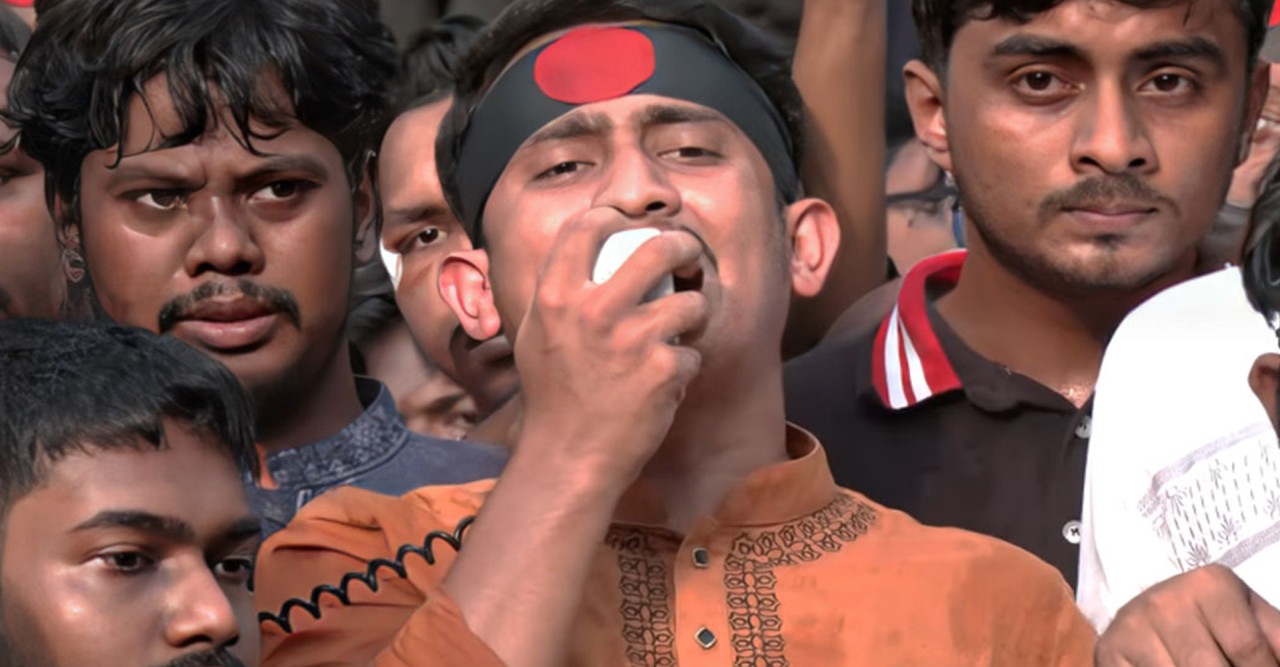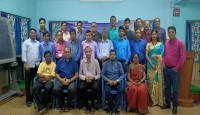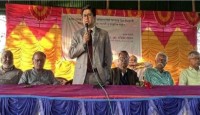"What Sarjis said about the distribution of sweets on August 15, 1975”
Pamelia Riviere
During an interview with Channel 24 for their podcast titled "What Sarjis said about the distribution of sweets on August 15, 1975," it was evident that the statement made was biased and lacked balance.
I would like to highlight the need for further consideration regarding the concept of equality within the student body, pointing out its current imbalance.
 As a message to the student body, I wanted to emphasize the importance of thoughtful consideration when delivering messages to the public. It's crucial to recognize that how you communicate can significantly impact the student leaders. Therefore, thinking through your words and potential consequences before speaking is essential.
As a message to the student body, I wanted to emphasize the importance of thoughtful consideration when delivering messages to the public. It's crucial to recognize that how you communicate can significantly impact the student leaders. Therefore, thinking through your words and potential consequences before speaking is essential.
Also, I would suggest being thoughtful while communicating with the media to avoid potential regrets. Emphasizing the importance of prudent decision-making, I urge the student body to prioritize equality and uphold the organization's reputation.
I encourage the student body to set shining examples of equality and to respect differing opinions without imposing their own. Your message must not underscore the importance of thoughtful and respectful communication in fostering a fair and inclusive environment in Bangladesh.
Remember, most Bangladeshis supported the student body with a strong belief in achieving equality and the freedom to express their views. It's important to show support for everyone, regardless of political affiliations, differences of opinion, and community. While it may seem challenging, it can be accomplished with caution and dedication to serving the people, upholding democratic principles, and promoting equality.
Sarjis Alam, a key organizer of the student protests, one of the leaders of the student movement, controversially stated that the death anniversary of Sheikh Mujib, the founding leader of Bangladesh, should not be celebrated. According to Sarjis, the assassination of Sheikh Mujib was not simply the work of a few military officers but rather a reflection of the public's growing frustration during the period of 1972-75.
He further criticized those who oppose his views, suggesting that they are inconsistent or unprincipled in their stance. Sarjis also emphasized the importance of free media, which could highlight the mistakes made by students. It sounded really good for the moment.
Upon scrutinizing his speech, I identified three key mistakes: first, his suggestion to not celebrate Sheikh Mujib’s death anniversary; second, his insinuation that critics are inconsistent; and third, his call for a free media to identify their mistakes, which does not align with his previous statements.
Sarjis must actively acknowledge and respect dissenting viewpoints. He should not think that people change their opinions based on the situation, similar to how chameleons change colour.
It's important to follow the rule of respecting others' opinions even when you disagree. Just because someone disagrees with you doesn't mean they are hiding their true feelings or intentions. And they are supporting particular political party and that is Awami League.
The student body should have issued a statement to the media regarding the decision to abolish the holiday for Bangabandhu's death anniversary if they truly valued people's sentiments. Instead, they made a whimsical decision that did not reflect the public's will, as many Bangladeshis hold Bangabandhu in high regard, not only Awami League supporters.
Sarjis conveyed these views to the press someway, leading the student body to press the head of the Interim Government to compromise on abolishing the death anniversary celebration. It appears that the head of the advisory board did not desire to engage in a conflict with the student body and decided to agree with them, disregarding public sentiment in the process.
Furthermore, Sarjis failed to acknowledge Sheikh Mujib's significance as a leader, not only of the Awami League but also of all Bangladeshis. He overlooked Sheikh Mujib's historical and political importance and needed to recognize his profound impact on shaping Bangladesh's political landscape.
"Bangabandhu," referring to Sheikh Mujibur Rahman, the founding father of Bangladesh, cannot be equated with Sheikh Hasina, the former Prime Minister of Bangladesh and his daughter.
The student body should not create a policy that impedes the interim government leader's ability to peacefully lead the country.











